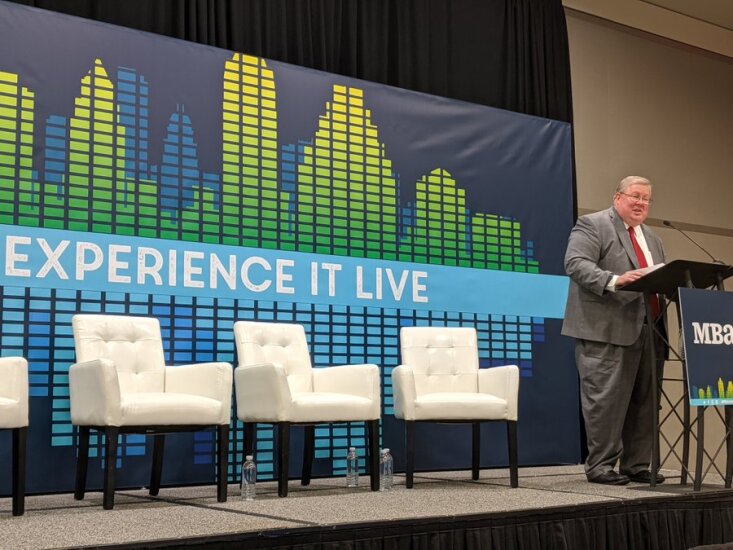
Texas roundup
Outgoing MBA chairman, Christopher George, gave the conference's opening remarks, welcomed chairman-elect, Brian Stoffers, and stated how the industry doesn't need more rules, it needs better clarity on the existing ones.
In that vein, HUD and the Justice Department
Among other major developments, Fannie Mae and Freddie Mac braced for

Man on a mission
"I think it's a great thing for them to be far less leveraged than they are. The process of exiting conservatorship will help fix a number of things and strengthen the companies," Calabria said in a press conference. "There's just too much exposure. Our most recent stress test results indicated if we had a downturn the size of the last market crash, the taxpayer would be looking at losses in excess of $40 billion. If we do have a downturn in the next couple years, they will fail. They will become insolvent, they will run out of capital. My objective is to avoid that."
Since taking over the position, leverage against the government-sponsored enterprises went to 500 to 1 from 1000 to 1. But as he explained during his open session, it won't matter if every loan a company does is pristine. It'll still fail in a downturn if it's leveraged 500 to 1.

Banding together is the way forward
A shift change needed to occur and it couldn't be done in isolation.
"We work with Fannie Mae to make sure what we're putting together is sellable and regulatory-compliant. To take advantage of some of the innovations that are happening, we work with a company like Blend," Tom Wind, executive vice president of consumer lending at U.S. Bank, said during a panel discussion.
"It's recognizing the size, scope and complexity of the problem and knowing we weren't able to get it done ourselves. But leveraging the talent that's out there, we can ultimately achieve that end goal of giving the customer the great experience through the approval process."

Future of FHA
"We're trying to implement changes to make the process more clear, transparent and fair. We also need to give our lender partners confidence that these improvements will stick," Brian Montgomery, the FHA commissioner and assistant secretary for housing, said during a panel.
The plan for the FHA has three elements. The first is to bring clarity and certainty to FHA forms and requirements. Then, to ensure compliance under all statutes and regulations. Lastly, the process needs to tie together certifications, taxonomy and a memorandum of understanding with the Justice Department.

More firsts
The high end of the forecast shows 9.2 million originations from first-time homebuyers in those three years. By comparison, 2016 through 2018 had 7.64 million and 2019 projects 2.7 million.
"Home prices are going to continue to go up, but at a slower pace than they've been," Joe Mellman, senior vice president and mortgage business leader at TransUnion, said in an interview. "The two biggest things are unemployment is at a near all-time low and we're finally starting to see wages increase more than inflation. That's a trend that just started recently and we're expecting it to continue in the near future. The last piece is interest rates are expected to remain low, and that's always good for first-timers."
Millennials and upcoming Gen Z buyers express home owning aspirations, driven by traditional motivations. Nearly 45% of those surveyed wanted increased privacy, 44% want to build their equity and wealth, while about 24% want to purchase because they're planning to get married.
However, the supply of affordable housing is lacking with builders focusing on more higher-end homes. There is also a knowledge gap with prospective borrowers.
"Many of our potential first-time home buyer respondents don’t seem to be aware of the wide variety of financing options available to them," Mellman said. "There’s




